Part of the MIT Climate Action Plan
MIT Climate Symposia: Symposium One
Progress in Climate Science
October 2, 2019
Chair: Kerry Emanuel, Cecil and Ida Green Professor of Atmospheric Science, Department of Earth, Atmospheric and Planetary Sciences, MIT
Keynote: Susan Solomon, Lee and Geraldine Martin Professor of Environmental Studies and Chemistry, Department of Earth, Atmospheric and Planetary Sciences, MIT
Welcome and introductory remarks: President L. Rafael Reif
The first of MIT’s six Climate Action Symposia, Progress in Climate Science, was held on Wednesday, October 2, 2019. Topics included:
- the relationship between greenhouse gas concentrations in the atmosphere and global warming, extreme weather events, and other climate impacts;
- remaining uncertainties and the prospects for reducing them; and
- projected physical effects of increasing greenhouse gas emissions under alternative mitigation scenarios.
Schedule
1:00-1:15 pm
Welcoming remarks
L. Rafael Reif, President MIT
1:15-1:45 pm
Keynote: Overview of Climate Science
Susan Solomon, Lee and Geraldine Martin Professor of Environmental Studies and Chemistry, Department of Earth, Atmospheric and Planetary Sciences, MIT
1:45-2:40 pm
Panel I: Frontiers in Climate Science
Moderator: Noelle Selin, Associate Professor, Institute for Data, Systems and Society and Department of Earth, Atmospheric and Planetary Sciences, MIT
Speakers:
- Nicolas Gruber, Professor, Department of Environmental Sciences, ETH Zürich
- David McGee, Associate Professor, Department of Earth, Atmospheric and Planetary Sciences, MIT
- Paul O’Gorman, Professor of Atmospheric Science, Department of Earth, Atmospheric and Planetary Sciences, MIT
- Ray Pierrehumbert, Halley Professor of Physics, University of Oxford
- Tapio Schneider, Theodore Y. Wu Professor of Environmental Science and Engineering, Caltech
2:40-2:50 pm
Break
2:50-3:45 pm
Panel II: Climate Risks
Moderator: Maria T. Zuber, Vice President for Research and E. A. Griswold Professor of Geophysics, MIT
Speakers:
- Philip Duffy, President and Executive Director, Woods Hole Research Center
- Sherri Goodman, Senior Fellow, Wilson Center
- Jerry Mitrovica, Professor of Science, Harvard University
- John Reilly, Co-Director, Joint Program on the Science and Policy of Global Change, MIT
3:45-4:00 pm
Wrap-up
Kerry Emanuel, Cecil and Ida Green Professor of Atmospheric Science, Department of Earth, Atmospheric and Planetary Sciences, MIT
Speakers
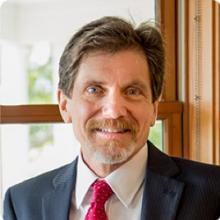
Philip Duffy is a physicist who has devoted his career to the use of science in addressing climate change. Prior to joining the Woods Hole Research Center, Duffy served as a Senior Advisor in the Obama White House, where he was involved in international climate negotiations, domestic and international climate policy, and coordination of U.S. global change research. He has held visiting academic posts at Stanford University, the Carnegie Institution for Science, and the University of California, Merced, and serves on committees of the National Academy of Sciences. He advises international, national, state, and local policymakers, as well as private corporations on climate change. He has a bachelor’s degree from Harvard and a PhD in applied physics from Stanford.
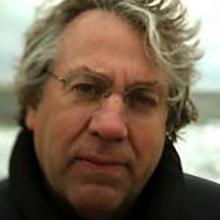
Kerry Emanuel is a meteorologist and climate scientist who specializes in moist convection in the atmosphere, and tropical cyclones. His research interests focus on tropical meteorology and climate, with a specialty in hurricane physics. His interests also include cumulus convection, the role of clouds, water vapor, and upper-ocean mixing in regulation of climate, and advanced methods of sampling the atmosphere in aid of numerical weather prediction. Emanuel is the author or co-author of over 200 peer-reviewed scientific papers, and three books, including Divine Wind: The History and Science of Hurricanes, and What We Know about Climate Change.

Sherri Goodman, senior fellow at the Wilson Center’s Environmental Change and Security Program and Polar Initiative, is credited with educating a generation of U.S. military and government officials about the nexus between climate change and national security, using her famous coinage, “threat multiplier,” to fundamentally reshape the national discourse on the topic. A former first Deputy Undersecretary of Defense (Environmental Security) and staff member on the Senate Armed Services Committee, Goodman has founded, led, or advised nearly a dozen research organizations on environmental and energy matters, national security, and public policy. A graduate of Amherst College, she has degrees from Harvard Law School and the Kennedy School of Government.

Nicolas Gruber received his PhD from the University of Bern in 1997. After a postdoc at Princeton University and an assistant professorship at UCLA, he became in Professor for Environmental Physics at ETH Zurich in 2006. His main scientific research interests are the global biogeochemical cycles of carbon and other biologically essential elements, and their interaction with the climate system. His research includes analysis of observations with modeling studies to better quantify the oceanic uptake of manmade CO2 by the ocean and its consequences for ocean acidification. He received the Rosenstiel Award from the University of Miami in 2004 and was elected fellow of the American Geophysical Union in 2012. He is an ISI highly cited author, co-author of a textbook on ocean biogeochemical dynamics, member of several international research boards, and presently contributes as a lead author to the IPCC special report on the ocean and cryosphere.
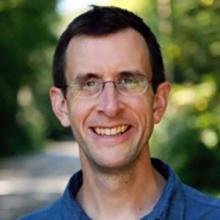
David McGee’s research focuses on understanding the atmosphere’s response to past climate changes. By documenting past changes in precipitation and winds using geochemical measurements of stalagmites, lake deposits, and marine sediments and interpreting these records in the light of models and theory, he aims to offer data-based insights into the patterns, pace, and magnitude of past hydroclimate changes. His primary tool is measurements of uranium-series isotopes, which provide precise uranium-thorium dates for stalagmites and lake deposits and allow reconstructions of windblown dust emission and transport using marine sediments.

Jerry X. Mitrovica joined Harvard in 2009 as a professor of geophysics. His work focuses on the Earth's response to external and internal forcings that have time scales ranging from seconds to billions of years. He has written extensively on topics ranging from the connection of mantle convective flow to the geological record, the rotational stability of the Earth and other terrestrial planets, ice age geodynamics, and the geodetic and geophysical signatures of ice sheet melting in our progressively warming world. Sea-level change has served as the major theme of these studies, with particular emphasis on critical events in ice age climate and on the sea-level fingerprints of modern polar ice sheet collapse.
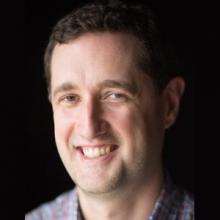
Paul O’Gorman’s research interests are in the dynamics of the atmosphere, the hydrological cycle, and climate change. His recent work has focused on the response of precipitation extremes to climate change, the intensity of extra-tropical storm tracks, and the potential of machine learning in climate modeling.

Ray Pierrehumbert is the Halley Professor of Physics at the University of Oxford. He is engaged in theoretical and computation work addressing climate dynamics of exoplanets, Solar System planets, and the early Earth. He also maintains a research program on policy-relevant aspects of the physics of anthropogenic climate change. He was a lead author on the Third Assessment Report of the Intergovernmental Panel on Climate Change.
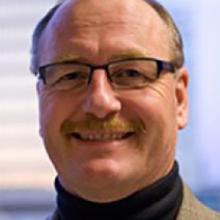
John Reilly is a co-director of the MIT Joint Program on the Science and Policy of Global Change and an energy, environmental, and agricultural economist. His research is focused on understanding the role of human activities as a contributor to global environmental change and the effects of environmental change on society and the economy. A key element of his work is the integration of economic models of the global economy as it represents human activity with models of biophysical systems including the ocean, atmosphere, and terrestrial vegetation. By understanding the complex interactions of human society with our planet, the goal is to aid in the design of policies that can effectively limit the contribution of human activity to environmental change, to facilitate adaptation to unavoidable change, and to understand the consequences of the deployment of large-scale energy systems that will be needed to meet growing energy needs.
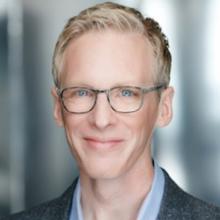
Tapio Schneider is the Theodore Y. Wu Professor of Environmental Science and Engineering and a Jet Propulsion Laboratory senior research scientist. His research focuses on the climate dynamics of Earth and other planets. His goal is to develop theories of climate and to advance climate modeling, to better understand and predict climate changes.
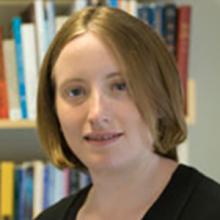
Noelle Selin is an associate professor in the MIT Institute for Data, Systems and Society and the MIT Department of Earth, Atmospheric and Planetary Sciences. She is also the Director of the MIT Technology and Policy Program. Her research uses atmospheric chemistry modeling to inform decision-making on air pollution, climate change, and hazardous substances such as mercury and persistent organic pollutants.
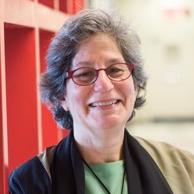
Susan Solomon is internationally recognized as a leader in atmospheric science, particularly for her insights in explaining the cause of the Antarctic ozone "hole." She and her colleagues have made important contributions to understanding chemistry/climate coupling, including leading research on the irreversibility of global warming linked to anthropogenic carbon dioxide emissions, and on the influence of the ozone hole on the climate of the southern hemisphere. Her current focuses are on issues relating to both atmospheric chemistry and climate change.
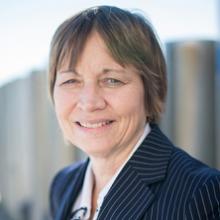
Maria T. Zuber is E. A. Griswold Professor of Geophysics and Vice President for Research at MIT, where she is responsible for research administration and policy. She oversees MIT Lincoln Laboratory and more than a dozen interdisciplinary research laboratories and centers, and leads MIT’s Plan for Action on Climate Change. Zuber is responsible for intellectual property and research integrity, and research relationships with the federal government. Zuber holds a BA from the University of Pennsylvania and an ScM and PhD from Brown. In 2019, Zuber was awarded the Gerard P. Kuiper Prize, and she is a member of the National Science Board.


